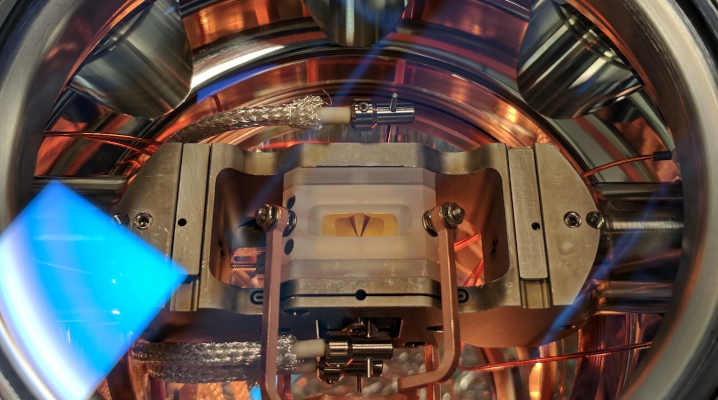 EMERGING TECH
EMERGING TECH
 EMERGING TECH
EMERGING TECH
 EMERGING TECH
EMERGING TECH
Q-CTRL Pty. Ltd., an Australian startup trying to build the software foundations for large-scale quantum computers, today announced that it has secured a $15 million round of funding.
Square Peg Capital led the investment with participation from Sequoia Capital, Main Sequence Ventures and Horizons Ventures. Q-CTRL will use the cash to set up a Los Angeles office in an expansion effort that is set roughly to double its 25-strong team.
The startup is tackling one of the biggest barriers standing in the way of quantum computers moving out of the lab: reliability. Current quantum computers are so fragile that they must be kept in isolated containers at temperatures near absolute zero. Even then, the average system can only run calculations for short periods of time before it starts throwing up errors.
The problem lies in the qubit, the quantum equivalent of a bit, which is the source of both the technology’s fragility and its tremendous potential. A qubit can be set not just to a one or zero like a traditional bit but also to both simultaneously, which means it has an extra value to work with when performing calculations. These extra values add up so quickly across an entire system that it’s believed quantum computers could one day surpass the power of even the largest modern supercomputers.
Q-CTRL provides software that helps quantum computer engineers stabilize qubits. The company’s two flagship products, Black Opal and Boulder Opal, visualize processing errors in sleek dashboards reminiscent of those that a business analyst might create to present their company’s latest sales figures.
Q-CTRL dashboards are naturally more complex. The startup’s tools display detailed technical data about the root causes of a problem and include controls that enable engineers to reprogram their quantum computer’s circuitry to correct for errors. Q-CTR’s software is used by quite a few of the companies that currently operate functioning quantum computers, among them Rigetti Computing Inc., Bleximo Inc. and consulting powerhouse Accenture plc.
The startup’s software could eventually find use on other types of systems as well. Specifically, Q-CTRL believe there’s an opportunity in so-called quantum sensors, an emerging device category that exploits many of the same subatomic physical phenomena as quantum computers. One such device developed in the U.K. can detect underground structures by measuring the movement of supercooled rubidium atoms above the surveyed location.
Support our mission to keep content open and free by engaging with theCUBE community. Join theCUBE’s Alumni Trust Network, where technology leaders connect, share intelligence and create opportunities.
Founded by tech visionaries John Furrier and Dave Vellante, SiliconANGLE Media has built a dynamic ecosystem of industry-leading digital media brands that reach 15+ million elite tech professionals. Our new proprietary theCUBE AI Video Cloud is breaking ground in audience interaction, leveraging theCUBEai.com neural network to help technology companies make data-driven decisions and stay at the forefront of industry conversations.